I don’t think I’ve ever stolen from a shop.
Except maybe once, from Woolworths in Stornoway, when I picked up one of the pick-and-mix sweeties as I was wandering round doing my shopping and scoffed it before I got to the till.
Oh, and when our youngest son was in his pushchair, we used to let him grab a soft roll at the first aisle of the local supermarket which kept him quiet until we got all the groceries. So that, by the time we got to the checkout, the staff would have had to X-ray him to find any evidence of the theft.
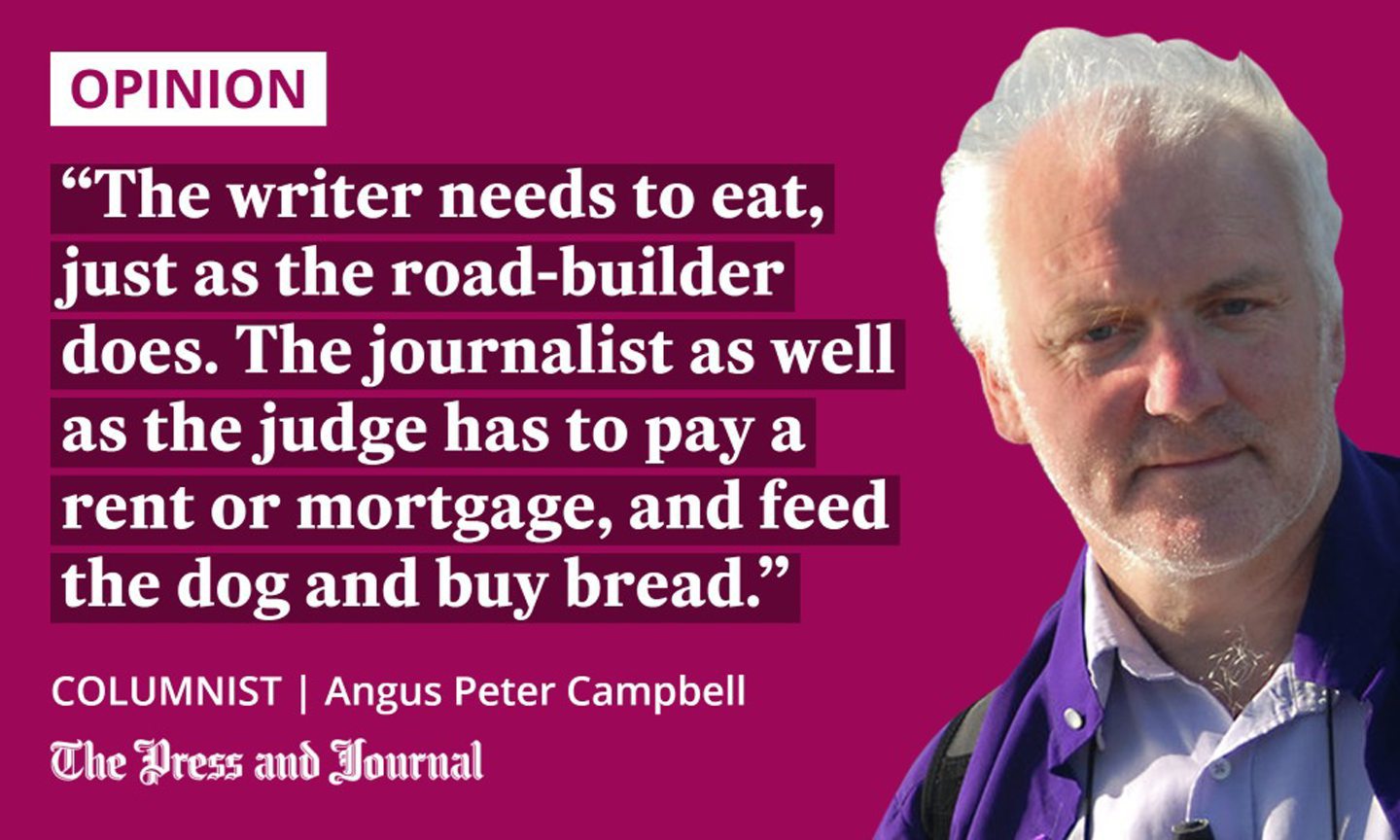
I’m not sure why I just don’t go round stealing from shops. I don’t think it’s the security or that bleep thing that goes off at the door if you’ve taken something (inadvertently?) without paying for it.
I think it’s just my upbringing, where was I taught not only Thou Shalt Not Steal as a commandment, but the reason for not stealing: you were taking something that belonged to someone else. Something they’d worked hard for.
And, yet, folk expect to read this column – this newspaper – for free online, and object if it’s behind what’s called a “paywall”. Just like a loaf of bread or a pint of milk or a litre of petrol…
Algorithmic corporate power masquerades as freedom
The fault, dear reader, is not in our stars, but in ourselves. Or at least in the internet. For, the worldwide web, despite all its benefits, has helped create a world where global algorithmic corporate power masquerades as freedom. As if there was such a thing as a free lunch: it all comes at an advertiser’s price.
What “freedom of access” has done is given companies like Google and Amazon and Meta and others access to your living room and kitchen and bedroom and wallet and desires and hopes and fears and ambitions, with the promise that they will, magically, fulfil some of these dreams while emptying your purse. Do I really need that new iPhone subscription…?
We are, of course, tempted into the lair by attractive offers. Free internet or access for a month, and then you can opt out. If you remember, or if you’re not hooked by then.
Not every company can afford to compete with these mega-giants, who can afford to give free offers while raking it in elsewhere. Newspapers, and especially regional newspapers – like all local businesses – get caught in the commercial crossfire and have suffered terribly over the past decade or so.
Paywalls aren’t an offence against liberty
You can shrug your shoulders and scoff and say: “So what?” Well, I’ve been long enough around journalism to know both its benefits and its faults. Far too often, it has been London-centric or Glasgow-centric or even Inverness-centric but, at their best, local newspapers give local communities an essential voice.
This newspaper is a good example. There may have been an apocryphal day when it was so parochial that it reported on the drowning of a poor north-east loon on the Titanic, but these days the north-east is everywhere. Or nowhere, drowned by the global babble.
We know what locals care about, because we are local. Like @RyanCryle, Head of Sport and @juliabryce92, Head of Food and Drink based at our office in Marischal Square. Because at The Press & Journal, every story starts with you.
Start your story today – https://t.co/tVct1HsmxT pic.twitter.com/3anmWOqSj9
— The Press & Journal (@pressjournal) November 18, 2021
People have become used to clicking a mouse and getting “free” access to information. Whether it’s true or false is immaterial. So, they object when they are suddenly met by a paywall, as if it’s an offence against individual liberty.
Has the journalist and columnist and writer and researcher not spent hours (sometimes a lifetime) on the topic? What price hard-earned knowledge, and experience and skill? What price knowing the difference between Gàidhlig and Gaeilge?
Writers need to eat
Maybe expertise doesn’t matter anymore. Was not that what Michael Gove said last year? We don’t need experts.
Liz Truss’s opinion is as regal as Liz Windsor’s. Though I still prefer to see a nurse or a doctor rather than the local spey-wife when it comes to medical matters. As I prefer to travel on a bus driven by a qualified driver rather than by any random passenger who’s sitting next to me.
I know it’s about choice: some prefer tea to coffee, some The Wall Street Journal to The Press and Journal
So, my dear people. This is the message: the labourer is worth his wages. Whether she or he is digging a ditch, or flying an aeroplane, or serving at the shop till, or writing a column in a newspaper.
The writer needs to eat, just as the road-builder does. The journalist as well as the judge has to pay a rent or mortgage, and feed the dog and buy bread.
I know it’s about choice: some prefer tea to coffee, some The Wall Street Journal to The Press and Journal. Just don’t expect the former to cover the Turra Show or the splendid occasion that is the Camanachd Cup Final.
Go on, be organic and support local produce. Subscribe to this splendid newspaper and help sustain local news, local jobs, good writing and plain, old-fashioned honesty.
Angus Peter Campbell is an award-winning writer and actor from Uist
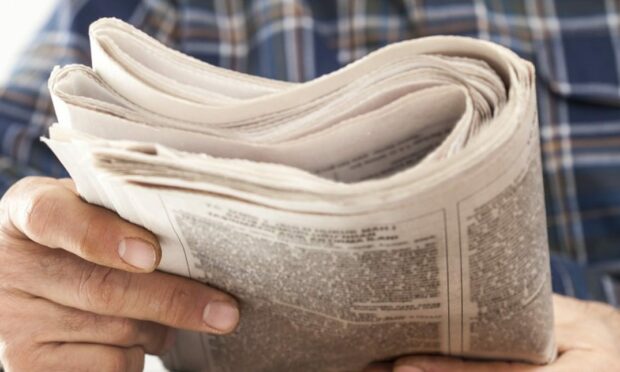


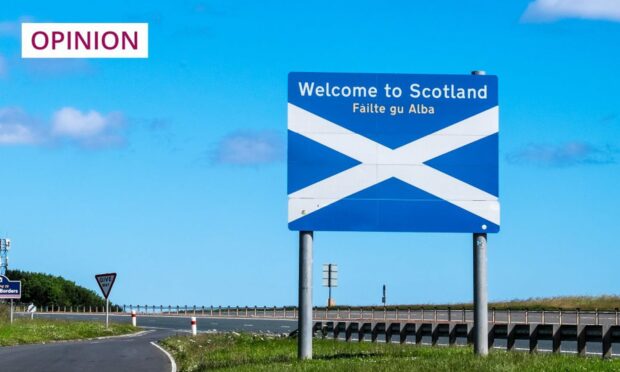

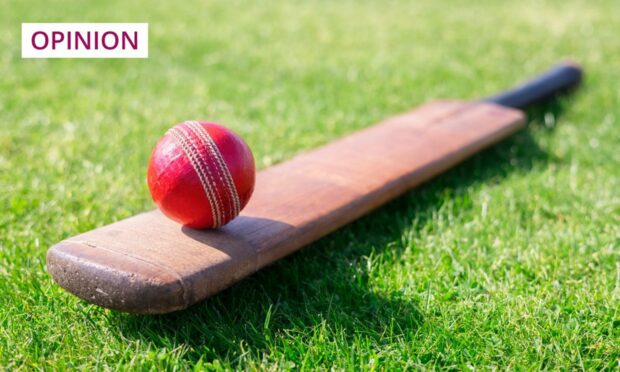
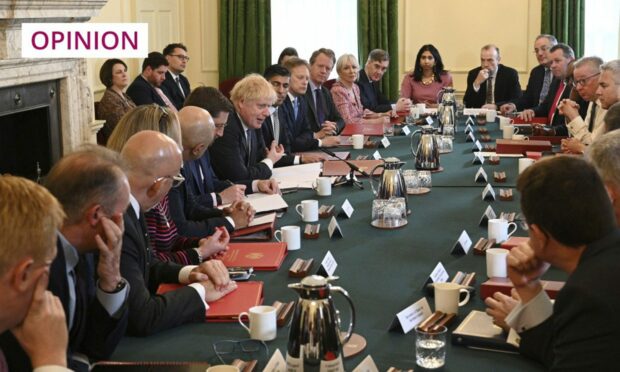
Conversation